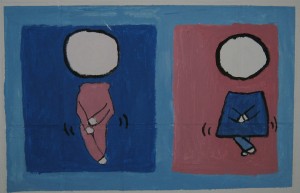 Enuresis and Encopresis are Elimination Disorders acknowledged in the DSM 5. They characterize difficulties with toileting behaviors.
Enuresis and Encopresis are Elimination Disorders acknowledged in the DSM 5. They characterize difficulties with toileting behaviors.
Often when children first learn to use the bathroom, accidents are expected to happen. Toileting behavior that is considered clinically significant is when instances of eliminating urine and/or feces are occurring outside of the bathroom, inappropriately and frequently. Specifically, at least 1-3 times for 3 months and the child is older than 4 or 5. These behaviors can occur on their own or together.
Enuresis is the inappropriate elimination of urine. The DSM 5 (Diagnostic and Statistical Manual of Mental Disorders) indicates that the prevalence of enuresis is around 5%- 10% for children 5 years old and 3 % – 5% of 10 year olds. Nighttime wetting is more common in males whereas daytime enuresis is more common among females. Encopresis is the inappropriate elimination of feces. The DSM 5 indicates the prevalence is approximately 1% of 5 year olds and is seen more in males.
Features:
- Involuntary or intentional
- Occur at night, during the day, or both
- May not be due to effects of a medicine or another medical condition
- Primary type (child was never fully toilet trained) vs secondary type (problem develops after child was toilet trained)
Factors that may contribute to toileting difficulties include but are not limited to:
- Stress & anxiety
- Inconsistent toileting training & routines
- Constipation / medical problem
- Genetics
- Control
- Discipline methods used around toileting successes & failures
- Behavioral factors
What to do if your child is exhibiting toileting troubles:
- Involve the pediatrician to rule out a medical condition
- Obtain education about nutrition and how to have a healthy diet to help with digestion and sustain regular toileting / bowel movements
- Consult with a psychologist
- Keep positive and remain patient
How can a psychologist help with bathroom troubles?
- To help explore stressors and determine if there is an emotional factor
- Parents can obtain assistance with behavior modification (i.e., establishing bathroom routines and appropriate reinforcements)
- Individual therapy for the child
- Family therapy
- A psychologist will assist the child to cope with their feelings & stress and improve their self expression





